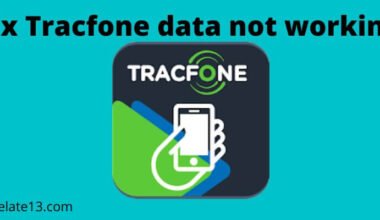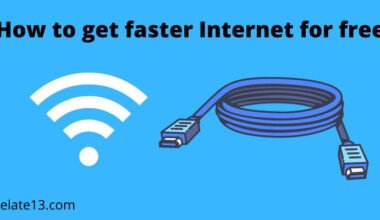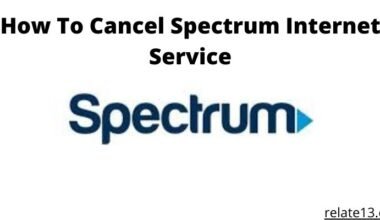Choosing the right internet service for your home can be a daunting task, given the multitude of options available in today’s market. With so many providers promising lightning-fast speeds and reliable connections, it’s crucial to know what factors to consider when making this important decision.
From download and upload speeds to pricing plans and customer support, several key aspects deserve your attention. In this guide, we’ll discuss the essential elements to look for when choosing an internet service for your home, helping you navigate through the sea of choices and find the perfect fit for your internet needs.
So, let’s dive in and discover what truly matters when it comes to selecting an internet service provider that will keep you connected and satisfied.
Look at these top factors to consider when choosing an internet service for Home
Things To Consider When Choosing an internet service
When it comes to choosing internet service there are several factors to consider. Speed, reliability, and cost are some of the most important things to keep in mind. Internet speed is crucial if you are using the internet for streaming, downloading, or gaming. I have some tips here you can look for:
1. Speed
Internet speed is a crucial factor to consider when choosing an internet service for your home. The speed of your internet connection determines how quickly you can download and upload data.
It directly impacts your online experience, especially for activities that require a significant amount of bandwidth, such as streaming high-definition videos, online gaming, or video conferencing.
To determine the appropriate speed, assess your household’s needs and the number of devices that will be simultaneously connected to the internet.
If you have multiple users or devices streaming content or engaging in bandwidth-intensive activities, you’ll need a plan with higher download and upload speeds to ensure smooth and uninterrupted connectivity.
2. Reliability
The reliability of your internet connection is vital for uninterrupted access to online services. You don’t want that your internet keeps dropping or interrupting with NO internet service. Right?
Consider the provider’s reputation for reliability and network uptime. Look for feedback from existing customers and check if the provider offers any service level agreements (SLAs) or guarantees regarding the availability and reliability of their service.
A reliable internet connection ensures that you can stay connected when you need it most, whether it’s for work, entertainment, or staying in touch with family and friends.
3. Data Caps and Unlimited Usage
Some internet service providers impose data caps, which limit the amount of data you can use within a billing cycle. It’s important to understand your data usage requirements and choose a plan accordingly.
If you engage in activities that consume large amounts of data, such as streaming high-definition videos or downloading large files, you may want to consider a plan with unlimited data or a higher data cap.
On the other hand, if your data usage is minimal and you don’t engage in data-intensive activities, a plan with a lower data cap may suffice. Be aware of any additional charges or speed throttling that may occur if you exceed the data limit.
4. Pricing
Pricing is a significant consideration when choosing an internet service provider. Compare pricing plans from different providers to find the one that fits your budget.
Take into account the monthly cost of the plan, any promotional rates or discounts, installation fees, equipment costs, and whether there are any price increases after an initial period.
It’s important to evaluate the long-term affordability of the plan, considering not only the introductory rates but also any potential price adjustments or additional fees that may apply.
5. Customer Support
Good customer support is invaluable when it comes to dealing with technical issues, inquiries, or service interruptions. Research the reputation of the internet service provider for customer support and responsiveness.
Look for providers that offer multiple channels of contact, such as phone, email, or live chat, and check if they provide 24/7 support. Prompt and reliable customer support can save you time and frustration in resolving any issues that may arise with your internet connection.
6. Availability and Coverage
Before choosing an internet service provider, ensure that their services are available in your area. Not all providers have coverage everywhere, particularly in rural or remote areas.
Check the provider’s website or contact their customer service to confirm their availability in your specific location. Availability can vary even within a city or region, so it’s essential to verify if the provider can serve your home with a stable and reliable internet connection.
7. Bundled Services
Some providers offer bundled services, combining internet, television, and phone services into a single package. Bundling can often result in cost savings compared to purchasing each service separately.
If you require multiple services, such as internet and cable TV or internet and home phone, consider the bundled options available from providers in your area. However, evaluate whether the bundled services align with your needs and if the overall package provides any additional benefits, such as discounted rates or enhanced features.
8. Contract Terms
Understanding the contract terms is essential before committing to an internet service provider. Take the time to review the contract thoroughly and pay attention to the details. Consider the length of the contract and whether it aligns with your preferences.
Some providers offer flexible month-to-month plans, while others require a longer-term commitment. Be aware of any early termination fees or penalties that may apply if you decide to switch providers before the contract period ends.
Additionally, familiarize yourself with any terms regarding rate increases, changes in service, or options for upgrading or downgrading your plan. Being well-informed about the contract terms will help you avoid any surprises or unwanted obligations down the line.
9. Security and Privacy
In an increasingly connected world, ensuring the security and privacy of your online activities is crucial. When selecting an internet service provider, consider their approach to security measures.
Look for providers that offer encryption protocols to safeguard your data during transmission and robust firewalls to protect against unauthorized access. Some providers may also offer additional security features like spam filters or antivirus software to enhance your online protection.
Additionally, investigate their privacy policies to understand how your personal information is handled and whether they sell or share it with third parties. Prioritizing security and privacy will help safeguard your sensitive information and provide peace of mind while using the internet.
10. Reviews and Recommendations
Before making a final decision, it’s beneficial to seek out reviews and recommendations from others who have experience with the internet service providers you are considering.
Online reviews from customers can provide insights into the quality of service, reliability, customer support, and overall satisfaction. Look for common themes or recurring issues that may arise from multiple reviews.
Additionally, reach out to friends, family, or neighbors who have used the providers you are interested in and ask for their firsthand experiences and recommendations. Hearing from others who have already navigated the selection process can provide valuable insights and help you make an informed decision.
Type of Connection
When choosing an internet service, it’s important to consider the type of connection offered by the provider. The type of connection determines how your home connects to the internet infrastructure and can impact factors such as speed, reliability, and availability. Here are some common types of internet connections to look for:
Digital Subscriber Line (DSL):
DSL utilizes existing telephone lines to provide internet connectivity. It offers a reliable and widely available option for many households. However, the speed and performance of DSL can vary depending on the distance from the provider’s central office, so it may be slower compared to other connection types.
Cable:
Cable internet uses coaxial cables to deliver internet service. It offers faster speeds compared to DSL and is widely available in urban and suburban areas. However, cable connections are shared among users in a neighborhood, which means that speeds can fluctuate during peak usage times.
Fiber Optic:
Fiber optic internet is known for its high speeds and reliability. It uses fiber optic cables to transmit data at the speed of light, providing faster and more consistent performance compared to DSL and cable. Fiber optic connections are less common and may not be available in all areas, especially rural regions.
Satellite:
Satellite internet is available virtually everywhere since it relies on satellite signals rather than physical infrastructure. It is a good option for rural or remote areas where other types of connections may not be accessible. However, satellite internet typically has higher latency and lower speeds compared to DSL, cable, or fiber optic connections.
Fixed Wireless:
Fixed wireless internet utilizes radio signals to provide connectivity. It requires a fixed antenna installed at your home to receive signals from a nearby base station. Fixed wireless can be a viable option in areas where wired connections are limited or unavailable. It offers relatively high speeds and low latency, but its availability is dependent on the proximity to the base station.
Keep in mind that availability can vary depending on your location, so check with providers to determine which types of connections they offer in your area.
You may also like:
- Can You Use a Smart TV Without Internet?
- Portable Internet Anywhere
- How To Cancel AT&T Internet Service
FAQs
What internet speed do I need for my household?
The internet speed you need depends on your online activities and the number of devices connected simultaneously. Basic web browsing and email usually require speeds of 1-5 Mbps, while activities like streaming HD videos or online gaming may need speeds of 25 Mbps or higher. Consider the specific needs of your household to determine the appropriate speed.
Can I switch internet service providers if I’m not satisfied with my current one?
Yes, you can switch internet service providers if you’re not satisfied with your current one. However, check if you’re under any contractual obligations or if there are any termination fees involved. Research and compare different providers to ensure a smooth transition and a better internet experience.
Are there any additional fees or hidden costs?
Some internet service providers may have additional fees or hidden costs beyond the monthly service fee. These can include installation fees, equipment rental fees, early termination fees, or fees for exceeding data caps. Review the provider’s terms and conditions or contact their customer support to understand the complete cost structure.
What factors affect internet reliability?
Several factors can affect internet reliability, including the type of connection, the quality of infrastructure, the provider’s network management practices, and external factors such as weather or physical damage to cables. Research the provider’s reputation for reliability and consider customer reviews to gauge their track record in providing consistent internet connectivity.
How long does it take to set up a new internet connection?
The time it takes to set up a new internet connection can vary depending on the provider and your location. In some cases, it can be done within a few days, while in others, it may take a couple of weeks. Contact the provider directly to inquire about their installation timelines and any prerequisites for the setup process.
Conclusion
Choosing the right internet service for your home requires careful consideration of various factors. The speed of the connection should align with your online activities and the number of devices in your household. Reliability is crucial for uninterrupted access to online services, and data caps should be evaluated based on your usage requirements. Price comparisons and understanding contract terms are essential for finding a plan that fits your budget.
Customer support should be reliable and responsive in addressing any technical issues or concerns. Additionally, considering the availability and coverage of the provider, as well as security measures and privacy policies, ensures a satisfactory internet experience. Lastly, reviews and recommendations from other users can provide valuable insights.
By weighing these factors, you can make an informed decision and select an internet service. That meets your needs for speed, reliability, affordability, and customer support, ultimately enhancing your online connectivity at home.






